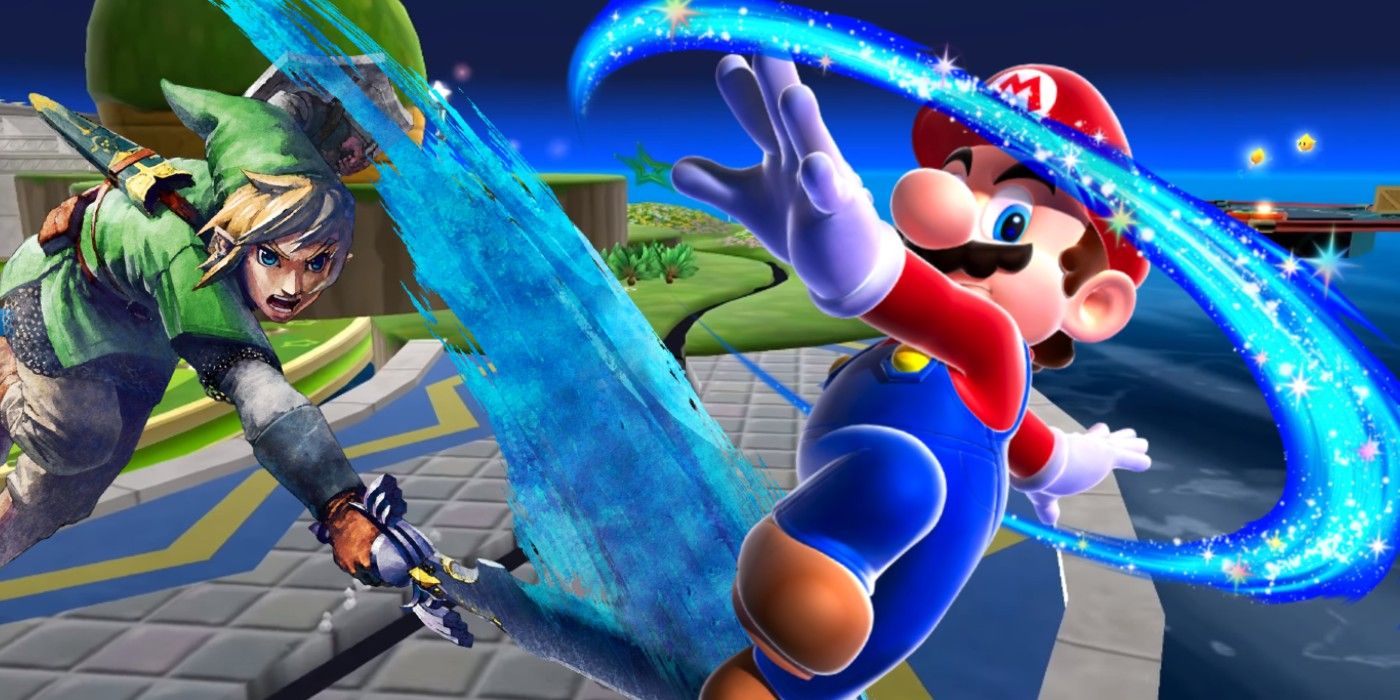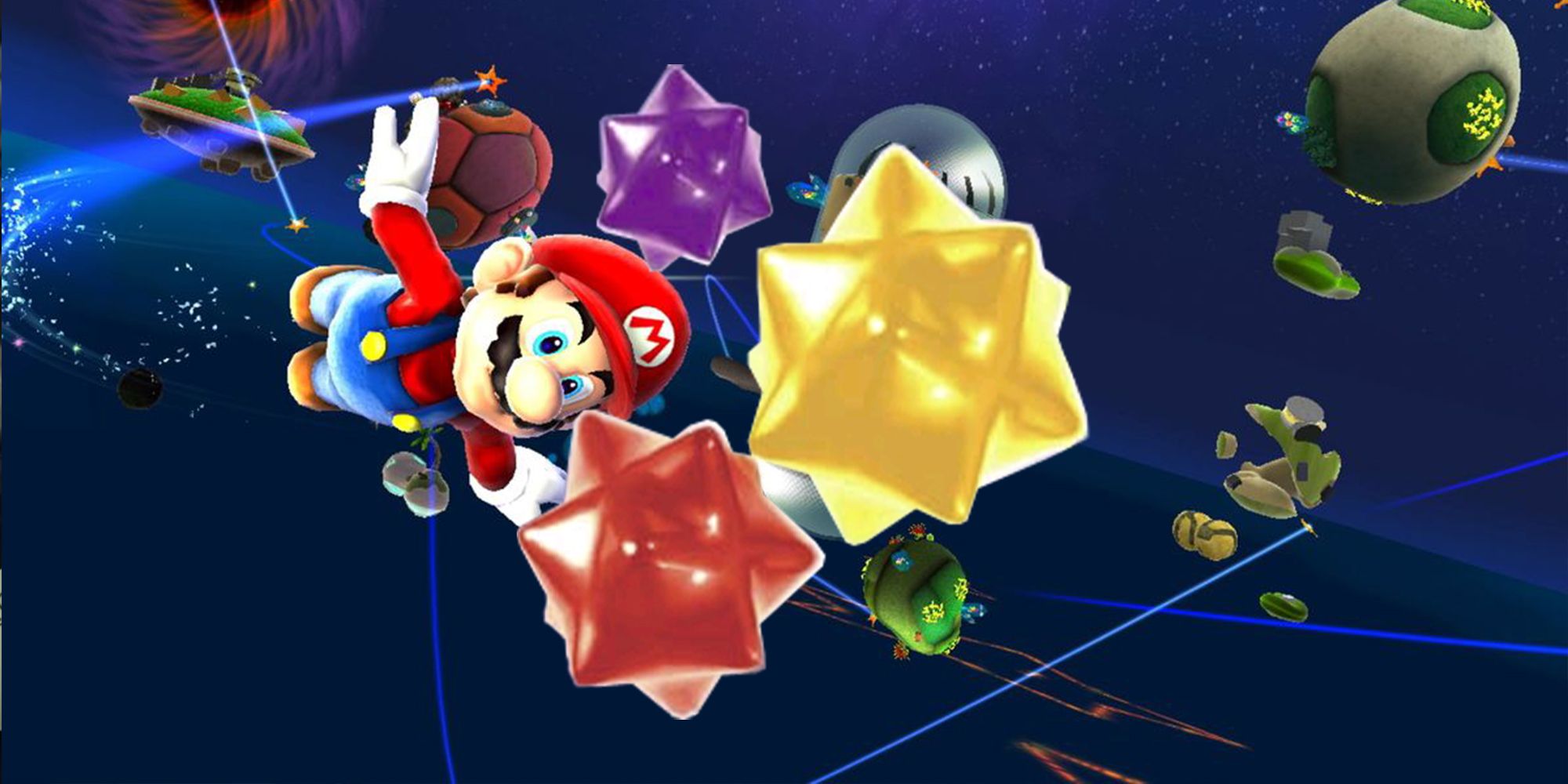
The Switch's Super Mario 3D All-Stars impressively adapted Nintendo's old-school control schemes to its Switch controller designs, but the compromises made to port this collection to current hardware are most present in Super Mario Galaxy. The game doesn't frequently push motion controls in a way that's excessive or detrimental to its overall quality, but Super Mario Galaxy was designed around the Wii Remote, and playing it on the Switch makes it feel slightly awkward. Its performance is passable, but it casts a concerning shadow on the heavily rumored Legend of Zelda: Skyward Sword remake.
Both Super Mario Galaxy and Skyward Sword were released for the Wii, and they took advantage of its unique capabilities. Players could use the Wii Remote's pointer to easily collect Mario Galaxy's Star Bits by hovering their cursor over them, which is a light use of motion controls that translated relatively well to the Switch. Still, without the Wii's sensor bar, the Switch port's developers had no choice but to dedicate this cursor to gyro-based aiming, which constantly needs to be recalibrated. When playing in handheld mode or on a Switch Lite, players use the touch screen instead. It's a decent workaround, but it forces players to remove their hand from the Joy-Con, which makes for an awkward and clumsy experience.
While there are a few levels in Super Mario Galaxy that rely entirely on motion controls, Skyward Sword's motion controls are prevalent throughout the whole game. Link's sword took advantage of the Wii MotionPlus, so players could swing his blade in any direction they wanted. Almost every item and menu in the game utilized these kinds of intense motion controls, and even with the Wii's sensor bar to help the controller stay calibrated, many players felt the need to recalibrate Skyward Sword's controls multiple times a play session.

As mentioned previously, the Switch version of Super Mario Galaxy's motion controls need to be recalibrated multiple times a level, and those controls are simplistic compared to the ones found in Skyward Sword. Skyward Sword's Wii controls were already a pain, so a loss of precision similar to the Mario Galaxy port's could lead to frustration and unfair deaths that would ultimately harm the quality of the game.
Playing Super Mario Galaxy on Switch, with its light use of motion controls, proved to be relatively cumbersome, which indicates that Skyward Sword would be nearly impossible to play. Galaxy's handheld-mode touch screen controls would be tedious at best if they were applied to any of Link's weapons. Most likely, if Nintendo were to release Skyward Sword on the Switch, it would end up like Super Mario Party, and players would be forced to play in tabletop or docked mode, alienating Switch Lite users. It's certainly possible to port the game over, but Super Mario Galaxy is evidence enough that Skyward Sword on Switch would be severely limited and likely ignore Nintendo's plethora of Switch Lite owners.
Super Mario 3D All-Stars released for the Nintendo Switch on September 18, 2020.
from ScreenRant - Feed https://ift.tt/2S4iIYU

No comments: